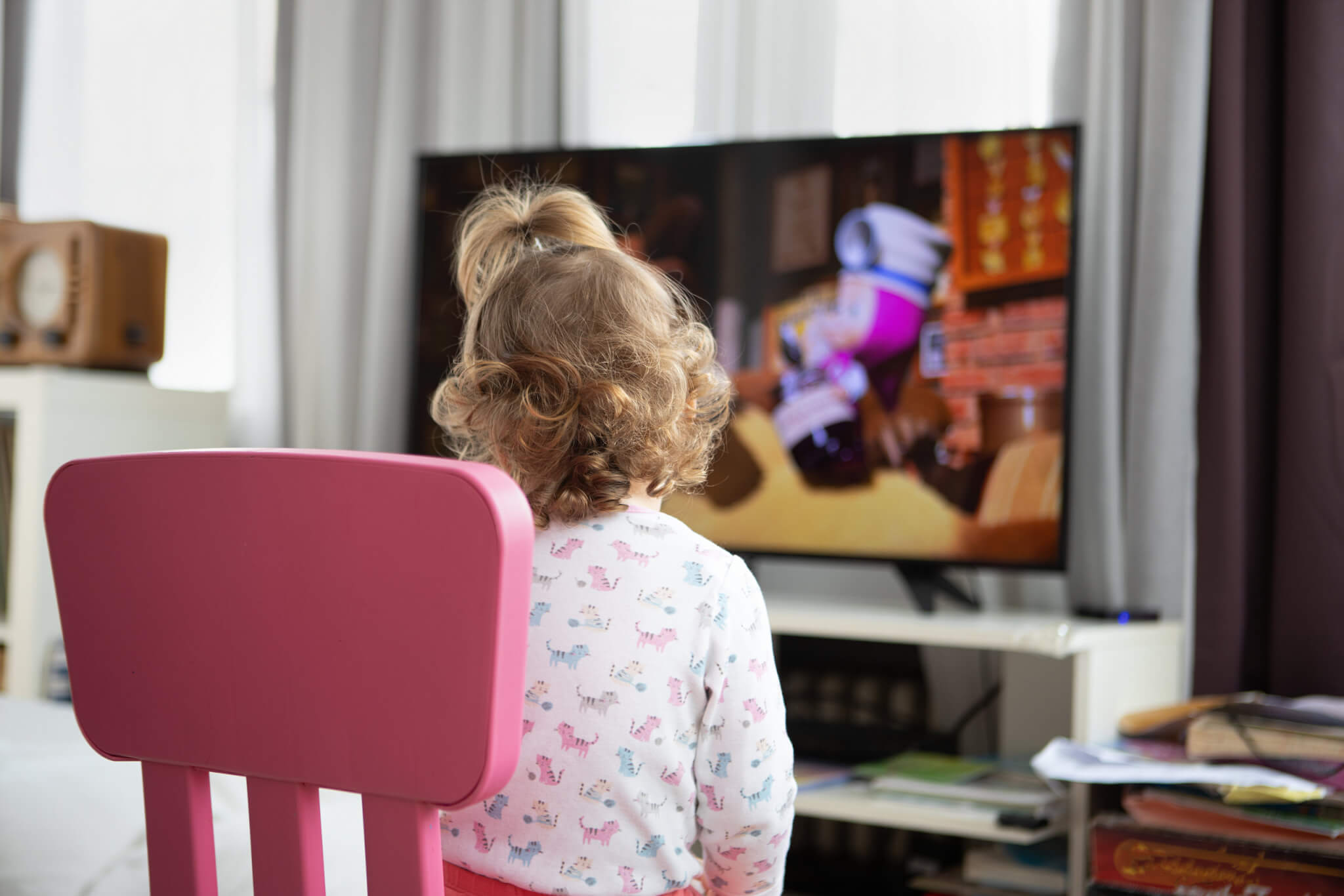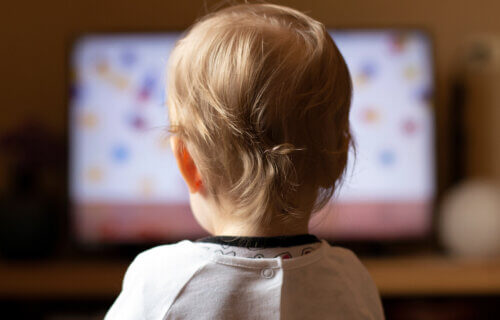PHILADELPHIA — Exposing toddlers to television and videos can lead to difficulties in processing their surroundings, a new study reveals. Researchers now suggest that young children should entirely avoid screen time for the first two years of life, as it may lead to atypical sensory behaviors related to autism and ADHD. These behaviors include disengagement and lack of interest in activities, seeking more intense environmental stimulation, or feeling overwhelmed by sensations such as loud sounds or bright lights.
Sensory processing skills are crucial in how we respond to our environment. They dictate our reactions to various stimuli, whether it be something we hear, see, or touch. In young children, these skills are particularly important as they navigate a world full of new experiences and sensations.
The study discovered that screen time at 12 months-old displays a link to a 105-percent higher likelihood of sensory processing issues by 33 months. These findings contribute to a growing list of concerns associated with screen time in infants and toddlers, including language delay, autism spectrum disorder, behavioral issues, sleep problems, attention difficulties, and delays in problem-solving.
“This association could have important implications for attention deficit hyperactivity disorder and autism, as atypical sensory processing is much more prevalent in these populations,” says Associate Professor Karen Heffler from Drexel University, in a media release. “Future work may determine whether early life screen time could fuel the sensory brain hyperconnectivity seen in autism spectrum disorders, such as heightened brain responses to sensory stimulation.”

The study also highlights the impact of the overall amount of screen time children engage in. Each additional hour of daily screen time at 18 months increased the chances of sensory problems by 23 percent. At 24 months, each additional hour raised these odds by 20 percent.
As a result, researchers recommend avoiding screen time for children under 24 months and limiting screen time to one hour per day for children between the ages of two and five. One exception is live video chat, as its social interaction benefits may outweigh the negative effects of screen time, according to the team.
“Considering this link between high screen time and a growing list of developmental and behavioral problems, it may be beneficial for toddlers exhibiting these symptoms to undergo a period of screen time reduction, along with sensory processing practices delivered by occupational therapists,” Dr. Heffler adds.
The research team analyzed data from 1,471 infants and toddlers under 24 months, focusing on their TV or DVD viewing habits. Researchers utilized the Infant/Toddler Sensory Profile (ITSP), a detailed questionnaire completed by parents and caregivers, to assess sensory processing outcomes. The ITSP helps in understanding how children process various sensory inputs, including touch, sound, and sight. It measures tendencies like sensation seeking (excessively touching or smelling objects), sensory sensitivity (being easily upset by noises or lights), and sensation avoiding (avoiding certain experiences like teeth brushing).
They assessed sensory processing outcomes at 33 months using a parent-completed questionnaire. The children were categorized into “typical,” “high,” or “low” groups based on their frequency of various sensory-related behaviors, including sensation seeking, sensory sensitivity, and sensation avoiding.
The study also highlights the wider concerns regarding the impact of screen time on the development and behavior of infants and toddlers, including language delays, autism spectrum disorder, behavioral issues, and attention problems. Given these findings, the American Academy of Pediatrics discourages screen time for children under 18-24 months, suggesting parents limit digital media use for children aged 2 to 5 to no more than 1 hour per day.
“Parent training and education are key to minimizing, or hopefully even avoiding, screen time in children younger than two years,” says senior author David Bennett, a professor of Psychiatry in Drexel’s College of Medicine.
The study is published in JAMA Pediatrics.
You might also be interested in:
- Screen Time Among Babies Linked To Autism-Like Symptoms In Childhood, Study Finds
- Kids who play sports are happier, healthier than those who go straight to their screens
- ADHD raises risk for several mental health issues, study concludes
South West News Service writer Isobel Williams contributed to this report.

No study needs to be done. Parents have become pssy’s. Period. Who’s the adult, who’s the child. What a worthless article and advice. JUST SAY NO!!!!!
In the 50s a Dr. Spock was saying this.The way light is transmitted interferes with brain development.
Whoa… maybe switch to decaf?
Nothing wrong with reinforcing good practices.